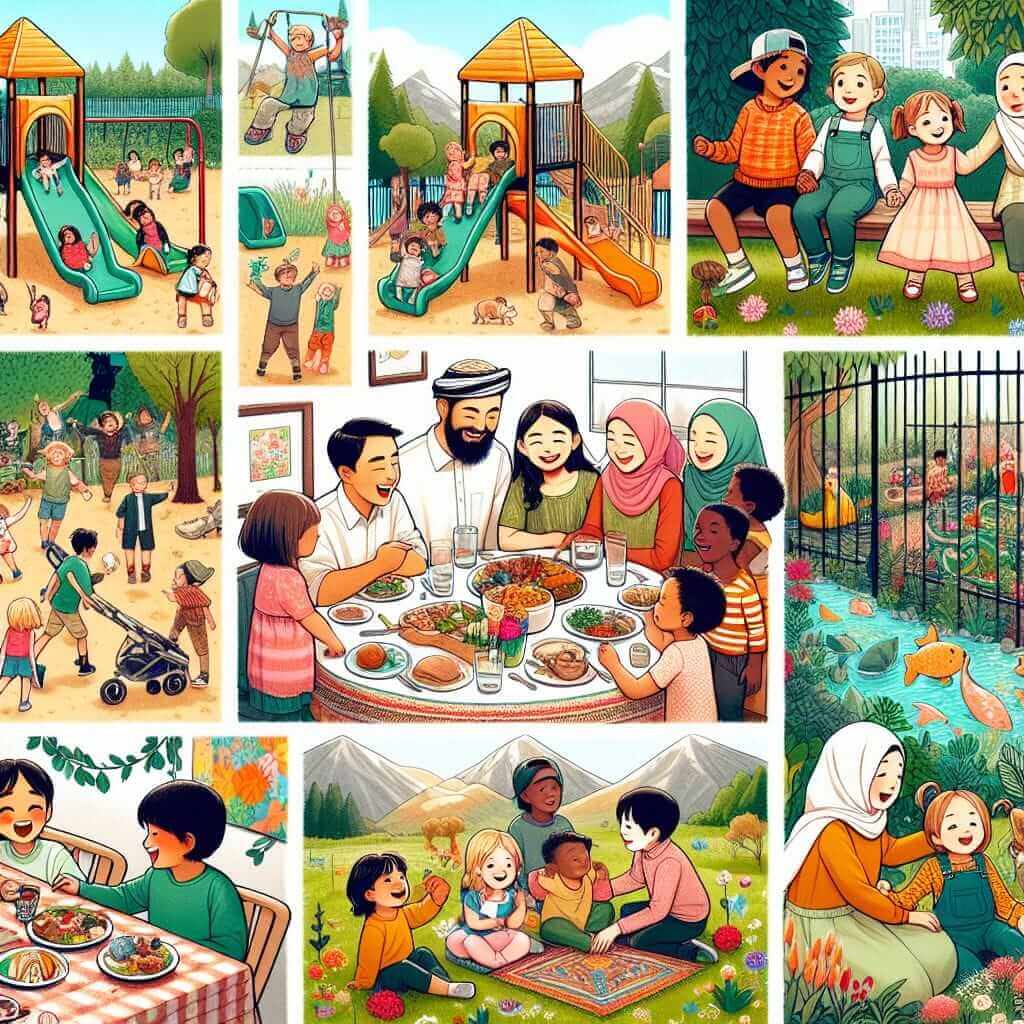As an IELTS instructor with over two decades of experience, I often encounter students who feel anxious about the seemingly simple yet deceptively challenging Speaking Part 1 questions. One such question is “What was it like growing up where you did?”. While appearing straightforward, this question requires a nuanced understanding of descriptive language, vocabulary related to childhood and upbringing, and the ability to craft a coherent and engaging narrative. This article aims to equip you with the tools and strategies needed to confidently tackle this common IELTS Speaking prompt.
Understanding the Question’s Intent
The examiner isn’t simply looking for a list of facts about your hometown or childhood. They are interested in:
- Your ability to describe experiences: Can you paint a vivid picture with your words and provide specific details?
- Vocabulary range: Do you possess a wide array of vocabulary related to childhood, places, and emotions?
- Fluency and coherence: Can you speak naturally and connect your ideas logically?
How to Structure Your Answer
A well-structured response is crucial for clarity and demonstrating coherence. Here’s a simple framework:
-
Direct Response: Begin with a direct answer to the question, outlining the general atmosphere of your upbringing. For example:
- “Growing up in [your hometown] was quite [positive adjective like peaceful/ lively]…”.
- “My childhood in [your hometown] was [positive adjective like memorable/ carefree] primarily because…”
-
Elaboration with Specific Examples: Provide specific details and examples to support your initial statement. For instance:
- If you mentioned a “peaceful” environment, you could talk about playing in quiet parks or having close-knit neighbors.
- If you highlighted a “lively” atmosphere, you might describe bustling markets or frequent community gatherings.
-
Contrast (Optional): You can add depth by contrasting your childhood experience with the present. This showcases your ability to use comparative language:
- “However, things have changed significantly now…”
- “Compared to today, life was much [simpler/slower/ etc.] back then…”
-
Concise Conclusion: Briefly summarize your experience, linking it back to your initial statement.
- “Overall, my childhood in [your hometown] played a significant role in shaping who I am today.”
- “Looking back, I feel fortunate to have had such a [positive adjective] upbringing in [your hometown].”

Illustrative Examples from Real IELTS Speaking Tests
Let’s examine how these tips translate into actual responses:
Prompt: What was it like growing up where you did?
Sample Answer 1: “Growing up in Hanoi was quite an adventure. It was a bustling city full of life, with street vendors selling delicious food on every corner. I remember spending countless hours playing soccer with my friends in the small alleys near our homes. It was a time of pure joy and carefree exploration. Today, Hanoi has modernized rapidly, but those childhood memories remain vivid and precious to me.”
Sample Answer 2: “My childhood in a small coastal town was idyllic in many ways. Life was peaceful and unhurried. I have fond memories of building sandcastles on the beach with my siblings and exploring the nearby forests. The sense of community was strong, and everyone knew each other. While I appreciate the convenience of city life now, I sometimes long for the tranquility of my hometown.”
Key Tips for Success
- Employ Vivid Vocabulary: Instead of using generic terms like “good” or “nice,” opt for richer vocabulary like “idyllic,” “bustling,” “close-knit,” or “carefree.”
- Utilize Sensory Details: Describe sights, sounds, smells, and feelings to create an immersive experience for the listener.
- Practice Regularly: Speak about your childhood experiences aloud, focusing on fluency and natural intonation. Record yourself to identify areas for improvement.
By following this comprehensive guide and practicing consistently, you can confidently and effectively answer the “What was it like growing up there?” IELTS Speaking question. Remember to relax, be yourself, and let your unique childhood experiences shine through!